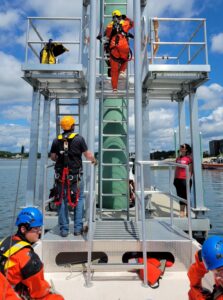 WOODS HOLE – The Galapagos Islands have long offered researchers a natural laboratory in which to study unique volcanic features and a diverse population of native plants and animals.
WOODS HOLE – The Galapagos Islands have long offered researchers a natural laboratory in which to study unique volcanic features and a diverse population of native plants and animals.
Although the creatures and islands have been well documented since Charles Darwin’s revolutionary research in the 19th century, there’s still much to be discovered beneath the waters that surround the remote Pacific Ocean island chain.
During a three-week expedition last August, an international team led by the Woods Hole Oceanographic Institution, conducted the first scientific expedition to map and characterize the seamounts on the Galapagos platform and the diverse marine life that these underwater mountains support.
The Galapagos archipelago, which is made up of 13 major volcanic islands, occupies a submerged platform, which rises more than 3km above the adjacent seafloor.
Until recently, the platform and the surrounding deep-water seamounts had not been explored using modern, high-resolution survey and sampling methods.
Results from the expedition will provide crucial information for the management of the Galapagos Marine Reserve.
One of the highlights of the expedition could be the discovery of a new species of catshark.
Video surveys showed rich and diverse communities dominated by deep-water hard corals, soft corals and a number of encrusting and vase sponges.























Speak Your Mind